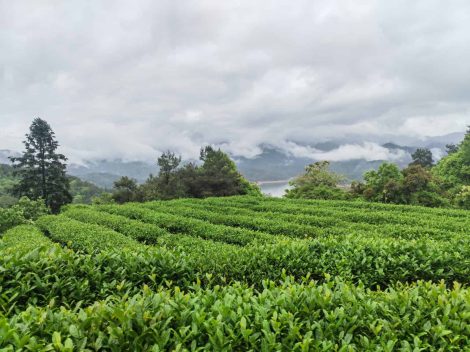The aromatic profile of tea is influenced not only by different tea varieties but also by the surrounding soil environment. This is what researchers from Wuyi University found in recent studies published on February 15, highlighting the crucial role of soil microbes residing in the plant roots in nutrient absorption and metabolism. However, the impact of this regulatory mechanism on tea quality had remained unclear until now.
Roots absorb
In this study, researchers demonstrated that some microbes isolated from tea roots increase the absorption of ammonia, thereby facilitating the synthesis of theanine, a determining factor for the taste and sensory characteristics of tea. This was observed by closely monitoring variations in the composition of microbial populations colonizing the roots in different seasons and with different tea varieties. By comparing the root microorganisms of the high theanine content Rougui tea variety with those of the low theanine content Maoxie variety, experts identified a specific group of microbes that potentially modulate nitrogen metabolism, thus influencing the theanine levels in tea.

Potential applications of this research
However, the researchers did not stop at observing these dynamics but sought to reproduce a synthetic microbial community (called SynCom) that reflected the composition of the microbial population found in the roots of the Rougui variety. The application of these synthetic microbes led to a significant increase in theanine content in tea plants and provided convincing evidence supporting the use of root microorganisms as functional fertilizers for improving tea quality.


 Wine was a drink of the people as early as the Early Bronze Age. A study disproves the ancient elitism of Bacchus’ nectar
Wine was a drink of the people as early as the Early Bronze Age. A study disproves the ancient elitism of Bacchus’ nectar "From 2nd April, US tariffs between 10% and 25% on wine as well." The announcement from the Wine Trade Alliance
"From 2nd April, US tariffs between 10% and 25% on wine as well." The announcement from the Wine Trade Alliance Michelin surprise: in France, the guide rewards Italian chefs
Michelin surprise: in France, the guide rewards Italian chefs Vinitaly 2025: "Piwi should not be included in the DOCs. Dealcoholised wines? I have changed my mind." Angelo Gaja's position
Vinitaly 2025: "Piwi should not be included in the DOCs. Dealcoholised wines? I have changed my mind." Angelo Gaja's position Vinitaly 2025: here are all the events by Gambero Rosso. Tre Bicchieri, debates, TV and much more...
Vinitaly 2025: here are all the events by Gambero Rosso. Tre Bicchieri, debates, TV and much more...







